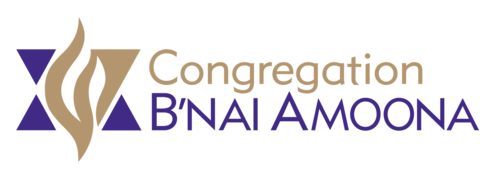This week’s Parashah of Reeh opens with the striking words drawn from the Book of Deuteronomy Chapter 11, Verses 26-28: (26) Reeh, See, this day I set before you blessing and curse: (27) blessing, if you obey the commandments of Adonai your God that I enjoin upon you this day; (28) and curse, if you do not obey the commandments of Adonai your God, but turn away from the path that I enjoin upon you this day and follow other gods, whom you have not experienced.
One of the obvious questions that need to be asked when we study this verse is why did Moses decide to make mention of both the blessings and the curses in the opening lines of this particular oration? Why conflate them in one statement? Why not mention the blessings that come from following God’s way first and only then transition to enumerating the curses that will befall those who veer from the path?
Without question, there are many plausible explanations for this stylistic choice made by Moses who, as we have come to appreciate, was a master teacher, an unparalleled pedagogue. As I pondered this question anew this year in preparation for our public reading of the Sidra of Reeh, I was reminded of a story that I heard over 20 years ago when I was serving as the Rabbi of the Jewish Community of Japan. I actually heard the tale from my driver/translator who accompanied me while I made a Kosher Supervisor visit to a chemical factory in remote part of China.
In northern China, there lived a man who owned a magnificent horse. So beautiful was this horse that people came from miles around just to admire it. They told him how blessed he was to own such a steed. "Perhaps," he said. "But what seems like a blessing may be a curse."
One day, the horse ran off. It was gone. People came to say how sorry they were for his bad luck. However, he responded, “Perhaps. But what seems like a curse may be a blessing."
A few weeks later, the horse returned, and it was not alone. It was followed by 21 wild horses. By the law of the land, they became his property. He was now rich with horses. His neighbors gathered to congratulate him on his good fortune. "Truly," they said, "you have been blessed”. “Perhaps. But what seems like a blessing may be a curse."
Shortly after that his only son tried to mount one of the wild stallions. He was thrown from it and broke his leg. The man's neighbors came to say how sorry they were. Surely, he had been cursed. "Perhaps," he said. "But what seems like a curse may be a blessing."
A week later, the king came through that village, conscripting every able-bodied young man for a war. It was horrible, bloody battle and everyone who went from the village was killed. Only that man's son survived, because of his broken leg. To this day, in that village, they say, "what seems like a blessing may be a curse and what seems like a curse may be a blessing."
It seems to me that (at least one of?) the reasons that Moses chose to include both the Brachot and Klatlot, the mention of both blessings and curses, in the same opening verses of our Torah Portion was to remind us, the inheritors and beneficiaries of Moses’ sagacious instruction, that the nature of the human condition, despite even our best efforts, is to be an amalgam of what we might refer to as blessings and curses. What at first blush might appear to be a victory, may turn out to be a reversal. And what might appear to be a reversal, may be a blessing in disguise. Each day, our Torah posits, we find ourselves standing at a crossroads. Will we be wise enough to see (from the word Reeh!) that we have choices before us? Not only the choice of how to act, but also the choice of how to react.
Shabbat Shalom,
Rabbi Carnie Shalom Rose
ravroseba@bnaiamoona.com
314-576-9990 x105



